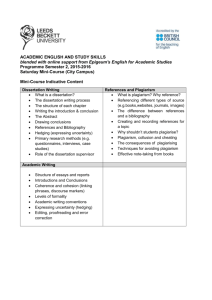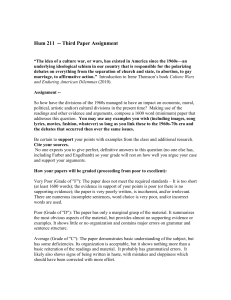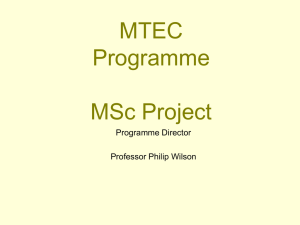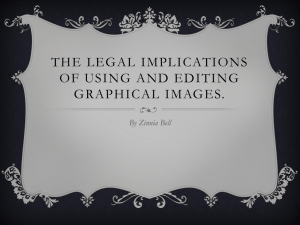Student Handbook advise on plagiarism
advertisement
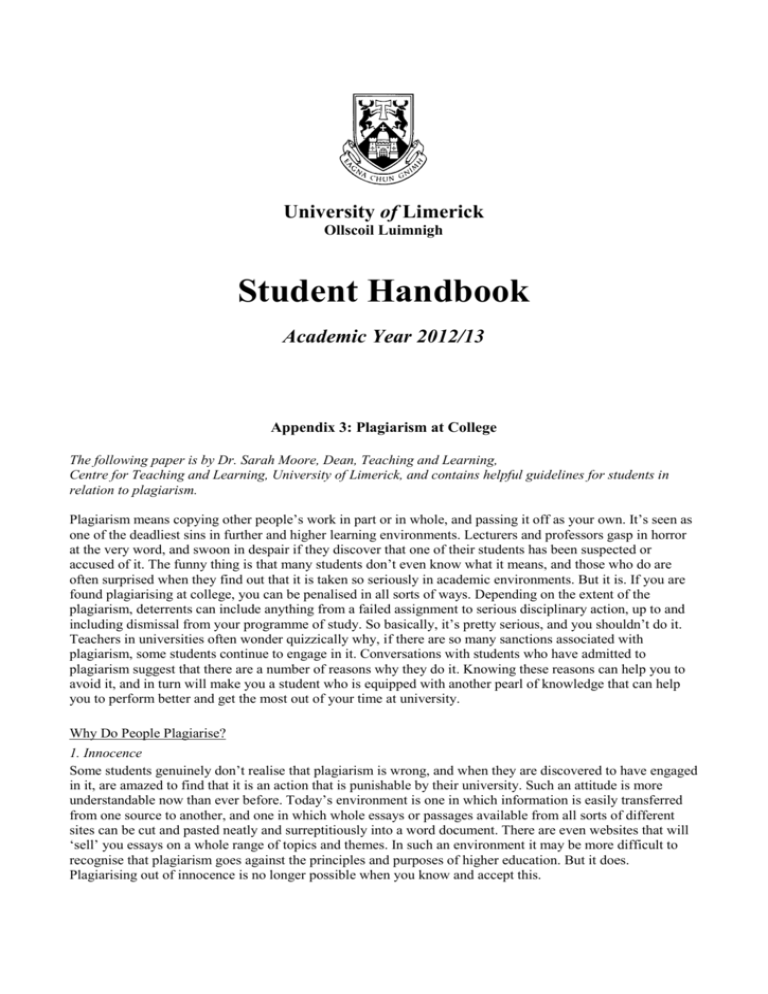
University of Limerick Ollscoil Luimnigh Student Handbook Academic Year 2012/13 Appendix 3: Plagiarism at College The following paper is by Dr. Sarah Moore, Dean, Teaching and Learning, Centre for Teaching and Learning, University of Limerick, and contains helpful guidelines for students in relation to plagiarism. Plagiarism means copying other people’s work in part or in whole, and passing it off as your own. It’s seen as one of the deadliest sins in further and higher learning environments. Lecturers and professors gasp in horror at the very word, and swoon in despair if they discover that one of their students has been suspected or accused of it. The funny thing is that many students don’t even know what it means, and those who do are often surprised when they find out that it is taken so seriously in academic environments. But it is. If you are found plagiarising at college, you can be penalised in all sorts of ways. Depending on the extent of the plagiarism, deterrents can include anything from a failed assignment to serious disciplinary action, up to and including dismissal from your programme of study. So basically, it’s pretty serious, and you shouldn’t do it. Teachers in universities often wonder quizzically why, if there are so many sanctions associated with plagiarism, some students continue to engage in it. Conversations with students who have admitted to plagiarism suggest that there are a number of reasons why they do it. Knowing these reasons can help you to avoid it, and in turn will make you a student who is equipped with another pearl of knowledge that can help you to perform better and get the most out of your time at university. Why Do People Plagiarise? 1. Innocence Some students genuinely don’t realise that plagiarism is wrong, and when they are discovered to have engaged in it, are amazed to find that it is an action that is punishable by their university. Such an attitude is more understandable now than ever before. Today’s environment is one in which information is easily transferred from one source to another, and one in which whole essays or passages available from all sorts of different sites can be cut and pasted neatly and surreptitiously into a word document. There are even websites that will ‘sell’ you essays on a whole range of topics and themes. In such an environment it may be more difficult to recognise that plagiarism goes against the principles and purposes of higher education. But it does. Plagiarising out of innocence is no longer possible when you know and accept this. 2. Accident Some students accidentally plagiarise by accessing their own notes. It is easy to take down a quote word for word or cut and paste some information, later forgetting that the source is someone other than yourself. This underlines the importance of proper note taking. 3. Desperation Many students who plagiarise do so more out of desperation than wilful deceit. They are often under time pressure to get an essay or assignment in, and they feel that they have no other option. They have not given themselves time to think about or prepare their own work and so they cobble together something that is not their own, hold their breath and hope for the best. 4. Blatant deceit Some students still persist in plagiarising material even when they have fully understood the risks and sanctions associated with it. If a student plagiarises wilfully and deceitfully, then the negative outcomes associated with plagiarism are all they should expect. There is a chance of course that someone can ‘get away’ with having plagiarised, but most universities (including this one) are putting in place safeguards, such as plagiarism software and lecturer training, that will make it more and more likely that acts of plagiarism will be detected and disciplined. As well as all the reasons for plagiarism that we have explored above, the real problem is that it is paradoxical. After all, we learn by copying. From the time we are very young, we mimic the language and actions of people around us, and in this way we learn to communicate and to interact successfully. It’s the same when you come to university. You realise that you are expected to adopt certain ways of writing, of presenting arguments and of following academic conventions. It can feel as if you are being told to ‘sound like us, write like us, learn to think like us, but whatever you do, don’t copy us.’ Overcoming this paradox may in fact be one of the most important rites of passage that you need to navigate while you are at university. It’s part of the learning journey and it’s about learning to believe in your own ideas; it’s about not being so besotted with one way of saying something or looking at something that it deprives you of your own voice; it’s about finding the confidence and the motivation to get real value out of your education, not just engaging in a blind pursuit to get letters after your name. To make sure that you never plagiarise, you need to adopt this orientation. Read and reflect on what you’ve read, and by all means absorb, record, understand and learn the ideas that have been presented by others. But then clear your throat. Stretch your fingers. Write and speak for yourself. You can do this with an understanding of the conventions of academia, but also with a strong sense that you too are capable of structuring, organising, integrating and creating knowledge in effective and exciting ways.
